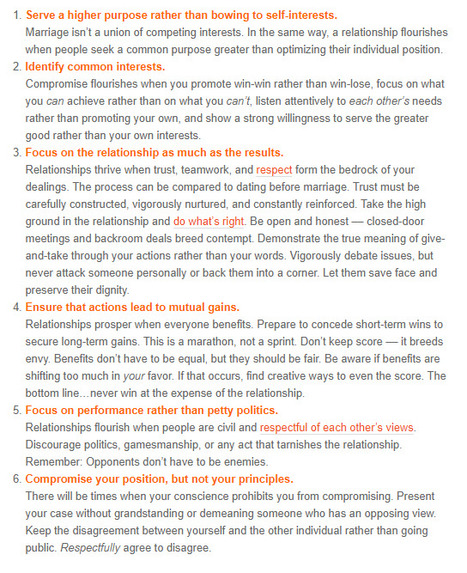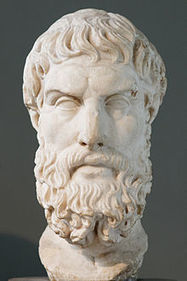 Your new post is loading...
 Your new post is loading...

|
Scooped by
Gust MEES
|
Das Wort Tugend (von mittelhochdeutsch tugent ‚Kraft, Macht, [gute] Eigenschaft, Fertigkeit, Vorzüglichkeit'; lateinisch virtus, altgriechisch ἀρετή aretḗ) ist abgeleitet von die ursprüngliche Grundbedeutung ist die Tauglichkeit (Tüchtigkeit, Vorzüglichkeit) einer Person. Allgemein versteht man unter Tugend eine hervorragende Eigenschaft oder vorbildliche Haltung. Im weitesten Sinne kann jede Fähigkeit zu einem Handeln, das als wertvoll betrachtet wird, als Tugend bezeichnet werden.
Tugend ist als Verbalabstraktum von taugen abgeleitet, einem Verb, dessen Grundbedeutung ‚geeignet, brauchbar sein, nützen‘ ist. Im Althochdeutschen ist um 1000 tugund (‚Tüchtigkeit‘, ‚Kraft‘, ‚Brauchbarkeit‘) bezeugt. Im Mittelhochdeutschen hat tugent, tugende zusätzlich die Bedeutungen ‚männliche Tüchtigkeit, Heldentat‘. Unter dem Einfluss theologischer und philosophischer Literatur, die aus dem Lateinischen ins Deutsche übersetzt wurde, trat im Mittelalter ein Bedeutungswandel ein: Der Begriff erhielt eine spezifisch moralische Bedeutung und bezeichnete eine sittliche Vollkommenheit im christlichen Sinn als Gegensatz zu Laster und Sünde. Diese Begriffsverwendung bürgerte sich seit der Übersetzungstätigkeit Notkers des Deutschen (10./11. Jahrhundert) ein. Learn more / En savoir plus / Mehr erfahren: https://www.scoop.it/topic/21st-century-learning-and-teaching/?&tag=Civilit%C3%A9 https://www.scoop.it/topic/21st-century-learning-and-teaching/?&tag=civility http://www.scoop.it/t/21st-century-learning-and-teaching/?&tag=Empathy https://www.scoop.it/topic/21st-century-learning-and-teaching/?&tag=DQ http://www.scoop.it/t/21st-century-learning-and-teaching/?tag=Empathy http://www.scoop.it/t/21st-century-learning-and-teaching/?tag=Soft+Skills

|
Scooped by
Gust MEES
|
Sur les autres projets Wikimedia : Les bonnes mœurs sont les habitudes, les usages conformes à la moralité, à la religion et à la culture d'un pays ou d'un peuple. Elles constituent un ensemble de normes, le plus souvent coutumières, en partie formulées dans les traités de civilité et dans les règles de droit civil et pénal.
Les bonnes mœurs sont les habitudes, les usages conformes à la moralité, à la religion et à la culture d'un pays ou d'un peuple. Elles constituent un ensemble de normes, le plus souvent coutumières, en partie formulées dans les traités de civilité et dans les règles de droit civil et pénal. Elles varient selon les peuples et les époques, et constituent l'un des objets d'étude de l'ethnologie et de la sociologie historique.
La notion de bonnes mœurs porte essentiellement sur la vie privée et sur son respect, elle est le contrepoint de celle d'ordre public.
Les bonnes mœurs renvoient de nos jours principalement aux sexualités : pornographie, inceste, polygamie, prostitution, proxénétisme, pudeur, etc. Learn more / En savoir plus / Mehr erfahren: https://www.scoop.it/topic/21st-century-learning-and-teaching/?&tag=Civilit%C3%A9 https://www.scoop.it/topic/21st-century-learning-and-teaching/?&tag=civility http://www.scoop.it/t/21st-century-learning-and-teaching/?&tag=Empathy https://www.scoop.it/topic/21st-century-learning-and-teaching/?&tag=DQ http://www.scoop.it/t/21st-century-learning-and-teaching/?tag=Empathy http://www.scoop.it/t/21st-century-learning-and-teaching/?tag=Soft+Skills

|
Scooped by
Gust MEES
|
Dieser Artikel oder Abschnitt bedarf einer Überarbeitung. Näheres sollte auf der Bitte hilf mit, ihn zu Diskussionsseite angegeben sein. verbessern, und entferne anschließend diese Markierung. In diesem Artikel oder Abschnitt fehlen noch folgende wichtige Informationen: Es fehlt die Begriffsgeschichte. Die fängt mit den alten Griechen und Augustinus („caritas") an und führt über einen Riesenbogen bis in die Gegenwart.

|
Scooped by
Gust MEES
|

|
Scooped by
Gust MEES
|
The word decadence, which at first meant simply "decline" in an abstract sense, is now most often used to refer to a perceived decay in standards, morals, dignity, religious faith, honor, discipline, or skill at governing among the members of the elite of a very large social structure, such as an empire or nation state.
The word decadence, which at first meant simply "decline" in an abstract sense, is now most often used to refer to a perceived decay in standards, morals, dignity, religious faith, honor, discipline, or skill at governing among the members of the elite of a very large social structure, such as an empire or nation state. By extension, it may refer to a decline in art, literature, science, technology, and work ethics, or (very loosely) to self-indulgent behavior.
Usage of the term sometimes implies moral censure, or an acceptance of the idea, met with throughout the world since ancient times, that such declines are objectively observable and that they inevitably precede the destruction of the society in question; for this reason, modern historians use it with caution. The word originated in Medieval Latin (dēcadentia), appeared in 16th-century French, and entered English soon afterwards. It bore the neutral meaning of decay, decrease, or decline until the late 19th century, when the influence of new theories of social degeneration contributed to its modern meaning.
In literature, the Decadent movement—late nineteenth century fin de siècle writers who were associated with Symbolism or the Aesthetic movement—was first given its name by hostile critics. Later it was triumphantly adopted by some of the writers themselves. The Decadents praised artifice over nature and sophistication over simplicity, defying contemporary discourses of decline by embracing subjects and styles that their critics considered morbid and over-refined. Some of these writers were influenced by the tradition of the Gothic novel and by the poetry and fiction of Edgar Allan Poe. Learn more / En savoir plus / Mehr erfahren: https://www.scoop.it/t/21st-century-learning-and-teaching/?&tag=Frank+SONNENBERG http://www.scoop.it/t/21st-century-learning-and-teaching/?&tag=Character http://www.scoop.it/t/21st-century-learning-and-teaching/?q=ethics https://www.scoop.it/t/21st-century-learning-and-teaching/?tag=Values http://www.scoop.it/t/21st-century-learning-and-teaching/?tag=Growth+Mindset

|
Scooped by
Gust MEES
|
Nous essayons d’être persuasifs lorsque nous présentons des arguments, qu’ils soient oraux ou écrits. Le public doit comprendre notre point de vue, avant même d’accepter nos arguments. Voilà en quoi consiste la rhétorique, dans laquelle les autres adoptent notre point de vue. Et qui de mieux qu’Aristote pour expliquer la rhétorique ? Les études de l’élève de Platon se sont concentrées sur la rhétorique. Ainsi, la rhétorique d’Aristote se compose de trois catégories : le pathos, l’éthos et le logos.
Le pathos, l’ethos et le logos sont les trois piliers fondamentaux de la rhétorique d’Aristote. Ces trois catégories sont considérées aujourd’hui comme différentes façons de convaincre un auditoire sur un sujet, une croyance ou une conclusion en particulier. Chaque catégorie est différente des autres. Néanmoins, connaître les trois nous aidera à impliquer les publics que nous abordons. Learn more / En savoir plus / Mehr erfahren: http://www.scoop.it/t/21st-century-learning-and-teaching/?tag=Irony http://www.scoop.it/t/21st-century-learning-and-teaching/?tag=Rhetorik

|
Scooped by
Gust MEES
|
Als Perfidie, auch Perfidität ( lat. perfidus = treulos, wortbrüchig, niederträchtig) beziehungsweise mit dem davon abgeleiteten Adjektiv perfide, werden Handlungen einer Person oder Personengruppe bezeichnet, die vorsätzlich das Vertrauen oder die Loyalität einer anderen Person oder Personengruppe ausnutzen, um beispielsweise in geschäftlichen Beziehungen oder in militärischen Auseinandersetzungen einen Vorteil zu erlangen.
Als Perfidie, auch Perfidität (lat. perfidus = treulos, wortbrüchig, niederträchtig) beziehungsweise mit dem davon abgeleiteten Adjektiv perfide, werden Handlungen einer Person oder Personengruppe bezeichnet, die vorsätzlich das Vertrauen oder die Loyalität einer anderen Person oder Personengruppe ausnutzen, um beispielsweise in geschäftlichen Beziehungen oder in militärischen Auseinandersetzungen einen Vorteil zu erlangen. Das bewusste Erzeugen eines solchen Vertrauens durch entsprechende Maßnahmen ist dabei oft ein wesentlicher Teil einer perfiden Handlung. Learn more / En savoir plus / Mehr erfahren: https://www.scoop.it/t/21st-century-learning-and-teaching/?&tag=Moral

|
Scooped by
Gust MEES
|
Kids do crazy things, but we expect more from grown-ups, don’t we? Unfortunately, that’s not always the case. Folks scream obscenities at ballgames, bully people on social media, and treat others with total disrespect. If you think this behavior is rude, insensitive, and tasteless, you’re right. But why is it so prevalent? The truth is, some people behave this way for personal gain; some folks don’t know better; and others know they’ll get away with it — because they have in the past. Some grown-ups never grow up.
While some indiscretions were once considered outlandish, we’ve become desensitized to these actions. It’s troubling that some of this behavior could have been avoided, but too many of us didn’t speak up. Instead, we closed our eyes to the poor behavior and waited for others to make the first move. The consequence is that wrongs committed by enough people become the norm over time. We have no one to blame except ourselves.
As leaders, role models, and parents, we must utilize every opportunity to reinforce the values that we hold dear.
What Values Do You Cherish?
Are polite manners a thing of the past? Should people honor their word? Is it Pollyanna to expect people to do what’s right? I think not! But if we don’t promote good values, don’t be surprised when bad ones become the norm. “How do we improve the situation?” you ask.
First, we must modify our criterion of excellence. It’s not what you have but who you are that counts. Moral character matters! Learn more / En savoir plus / Mehr erfahren: https://www.scoop.it/t/21st-century-learning-and-teaching/?&tag=Frank+SONNENBERG http://www.scoop.it/t/21st-century-learning-and-teaching/?&tag=Character http://www.scoop.it/t/21st-century-learning-and-teaching/?q=ethics https://www.scoop.it/t/21st-century-learning-and-teaching/?tag=Values http://www.scoop.it/t/21st-century-learning-and-teaching/?tag=Growth+Mindset

|
Scooped by
Gust MEES
|
If you define winning as getting the upper hand, backing your opponent into a corner, and winning at any expense, you’ve got it all wrong. You may win in the short term, but think about the relationship going forward. Do those actions build trust, teamwork, and respect? I think not. You’ve probably created enough animosity, distrust, and jealousy to last a lifetime. In other words, you may have won the battle, but lost the war. There’s a better way…winning doesn’t have to be at someone’s expense.
Compromise: A Win-Win Strategy
Some people need to win at all costs because their ego won’t accept anything less. They’d rather win personally than accomplish something meaningful. Compromise isn’t a synonym for surrender; it’s a winning battle plan. Learn more / En savoir plus / Mehr erfahren: http://www.scoop.it/t/21st-century-learning-and-teaching/?&tag=Win-Win-Situation http://www.scoop.it/t/21st-century-learning-and-teaching/?&tag=Frank+SONNENBERG

|
Scooped by
Gust MEES
|

|
Scooped by
Gust MEES
|
Aristotle (in Rhetoric) defined envy (φθόνος phthonos) "as the pain caused by the good fortune of others", while Kant defined it as "a reluctance to see our own well-being overshadowed by another's because the standard we use to see how well off we are is not the intrinsic worth of our own well-being but how it compares with that of others" (in Metaphysics of Morals).

|
Scooped by
Gust MEES
|

|
Scooped by
Gust MEES
|
|

|
Scooped by
Gust MEES
|
Gute Sitten ist der positive moralische Wert der Sitte. Der Begriff umfasst das Gerechtigkeits- und Anstandsgefühl aller moralisch und gerecht Denkenden (Erwachsenen) in der Gesellschaft und entspricht folglich der vorherrschenden Rechts- und Sozialmoral. Gute Sitten ist, genau wie die im Grundgesetz für die Bundesrepublik Deutschland verwendete Formulierung Sittengesetz ( Abs.

|
Scooped by
Gust MEES
|
Reverse engineering, also called back engineering, is the process by which a man-made object is deconstructed to reveal its designs, architecture, or to extract knowledge from the object; similar to scientific research, the only difference being that scientific research is about a natural phenomenon.

|
Scooped by
Gust MEES
|
Eine Sitte ist eine durch moralische Werte, Regeln oder soziale Normen bedingte, in einer bestimmten Gruppe oder Gemeinschaft entstandene und für den Einzelnen verbindlich geltende Verhaltensnorm (vgl. Ferdinand Tönnies, Die Sitte, 1908). Meist beruht sie auf Tradition und Gewohnheit (= „Usus"). Eine Sitte ist jedoch mehr als Gewohnheit; denn es gibt auch als schlecht bewertete Gewohnheiten (manchmal Unsitte genannt).

|
Scooped by
Gust MEES
|
Moral courage is the courage to take action for moral reasons despite the risk of adverse consequences. Courage is required to take action when one has doubts or fears about the consequences. Moral courage therefore involves deliberation or careful thought. Reflex action or dogmatic fanaticism do not involve moral courage because such impulsive actions are not based upon moral reasoning.

|
Scooped by
Gust MEES
|
Dekadenz (von lateinisch „fallen", „sinken", französisch „Niedergang", „Verfall", über mittellateinisch decadentia) ist ein ursprünglich geschichtsphilosophischer Begriff, mit dem Veränderungen in Gesellschaften und Kulturen als Verfall, Niedergang beziehungsweise Verkommenheit gedeutet und kritisiert wurden. Er wurde in der französischen Historiographie zuerst für den Niedergang Roms gezielt verwendet. Die Kritik am Dekadenten emanzipiert sich vom hergebrachten religiösen Moralisieren.

|
Scooped by
Gust MEES
|
In the context of war, perfidy is a form of deception in which one side promises to act in good faith (such as by raising a flag of truce) with the intention of breaking that promise once the unsuspecting enemy is exposed (such as by coming out of cover to attack the enemy coming to take the "surrendering" prisoners into custody).
In the context of war, perfidy is a form of deception in which one side promises to act in good faith (such as by raising a flag of truce) with the intention of breaking that promise once the unsuspecting enemy is exposed (such as by coming out of cover to attack the enemy coming to take the "surrendering" prisoners into custody). Perfidy constitutes a breach of the laws of war and so is a war crime, as it degrades the protections and mutual restraints developed in the interest of all parties, combatants, and civilians. Learn more / En savoir plus / Mehr erfahren: https://www.scoop.it/t/21st-century-learning-and-teaching/?&tag=Moral

|
Scooped by
Gust MEES
|
There is a tradition of cosmopolitanism, and if we had time we could study this tradition, which comes to us from, on the one hand, Greek thought with the Stoics, who have a concept of the 'citizen of the world'. You also have St.
Cosmopolitanism is the ideology that all human beings belong to a single community, based on a shared morality. A person who adheres to the idea of cosmopolitanism in any of its forms is called a cosmopolitan or cosmopolite.
A cosmopolitan community might be based on an inclusive morality, a shared economic relationship, or a political structure that encompasses different nations. In a cosmopolitan community individuals from different places (e.g. nation-states) form relationships of mutual respect. As an example, Kwame Anthony Appiah suggests the possibility of a cosmopolitan community in which individuals from varying locations (physical, economic, etc.) enter relationships of mutual respect despite their differing beliefs (religious, political, etc.).[1]
Various cities and locales, past or present, have been or are identified as "cosmopolitan"; that does not necessarily mean that all or most of their inhabitants consciously embrace the above philosophy. Rather, locales may be called "cosmopolitan" simply because people of various ethnic, cultural and/or religious background live in proximity and interact with each other.
In origin, cosmopolitanism suggests the establishment of a cosmo polis or ‘world state’ that would embrace all humanity. Cosmopolitanism has come to stand for peace and harmony among nations, founded upon understanding, tolerance and interdependence. Learn more / En savoir plus / Mehr erfahren: https://www.scoop.it/t/21st-century-learning-and-teaching/?&tag=Moral

|
Scooped by
Gust MEES
|

|
Scooped by
Gust MEES
|
At least when I was in grade school, we learned the very basics of how the Third Reich came to power in the early 1930s. Paramilitary gangs terrorizing the opposition, the incompetence and opportunism of German conservatives, the Reichstag Fire. And we learned about the critical importance of propaganda, the deliberate misinforming of the public in order to sway opinions en masse and achieve popular support (or at least the appearance of it). While Minister of Propaganda Joseph Goebbels purged Jewish and leftist artists and writers, he built a massive media infrastructure that played, writes PBS, “probably the most important role in creating an atmosphere in Germany that made it possible for the Nazis to commit terrible atrocities against Jews, homosexuals, and other minorities.” Learn more / En savoir plus / Mehr erfahren: http://www.scoop.it/t/21st-century-learning-and-teaching/?tag=demagogue

|
Scooped by
Gust MEES
|
Jealousy is an emotion, and the word typically refers to the thoughts and feelings of insecurity, fear, concern, and anxiety over an anticipated loss of status or something of great personal value, particularly in reference to a human connection. Jealousy often consists of a combination of emotions such as anger, resentment, inadequacy, helplessness and disgust.

|
Scooped by
Gust MEES
|
Veröffentlicht am Donnerstag, 7. Juli 2016 um 19:13
(mig) - Ab der Rentrée 2016/17 ersetzt das neue Fach "Leben und Gesellschaft" den jetzigen Religions- und Moralunterricht im Secondaire. Im Fondamental wird das Fach erst 2017/18 eingeführt. Der Gesetzentwurf wurde am Donnerstag im Parlament mit den Stimmen der Mehrheitsparteien (32) und 28 Nein-Stimmen verabschiedet.
"Vie et société" ist ein Pflichtfach, bei dem sowohl weltanschauliche, philosophische als auch religiöse Sichtweisen auf neutrale Art behandelt werden sollen. Im Zentrum stehen sechs Lernfelder rund um den Zusammenhalt in einer multikulturellen Gesellschaft. Aufgabe des Fachs ist es, einen Zugang zur Pluralität an Werten, Kulturen, Weltanschauungen und Religionen zu ermöglichen und die jungen Menschen zu einer konstruktiven und kritischen Auseinandersetzung anzuregen. Learn more / En savoir plus / Mehr erfahren: http://www.scoop.it/t/luxembourg-europe/?tag=Education

|
Scooped by
Gust MEES
|
Atheism is, in the broadest sense, the absence of belief in the existence of deities.[1][2][3][4] Less broadly, atheism is the rejection of belief that any deities exist.[5][6] In an even narrower sense, atheism is specifically the position that there are no deities.[1][2][7] Atheism is contrasted with theism,[8][9] which, in its most general form, is the belief that at least one deity exists.[9][10][11]
The term "atheism" originated from the Greek ἄθεος (atheos), meaning "without god(s)", used as a pejorative term applied to those thought to reject the gods worshiped by the larger society.[12] With the spread of freethought, skeptical inquiry, and subsequent increase in criticism of religion, application of the term narrowed in scope. The first individuals to identify themselves using the word "atheist" lived in the 18th century during the Age of Enlightenment.[13] The French Revolution, noted for its "unprecedented atheism," witnessed the first major political movement in history to advocate for the supremacy of human reason.[14]
|




 Your new post is loading...
Your new post is loading...





























Tugend ist als Verbalabstraktum von taugen abgeleitet, einem Verb, dessen Grundbedeutung ‚geeignet, brauchbar sein, nützen‘ ist. Im Althochdeutschen ist um 1000 tugund (‚Tüchtigkeit‘, ‚Kraft‘, ‚Brauchbarkeit‘) bezeugt. Im Mittelhochdeutschen hat tugent, tugende zusätzlich die Bedeutungen ‚männliche Tüchtigkeit, Heldentat‘. Unter dem Einfluss theologischer und philosophischer Literatur, die aus dem Lateinischen ins Deutsche übersetzt wurde, trat im Mittelalter ein Bedeutungswandel ein:
Der Begriff erhielt eine spezifisch moralische Bedeutung und bezeichnete eine sittliche Vollkommenheit im christlichen Sinn als Gegensatz zu Laster und Sünde. Diese Begriffsverwendung bürgerte sich seit der Übersetzungstätigkeit Notkers des Deutschen (10./11. Jahrhundert) ein.
Learn more / En savoir plus / Mehr erfahren:
https://www.scoop.it/topic/21st-century-learning-and-teaching/?&tag=Civilit%C3%A9
https://www.scoop.it/topic/21st-century-learning-and-teaching/?&tag=civility
http://www.scoop.it/t/21st-century-learning-and-teaching/?&tag=Empathy
https://www.scoop.it/topic/21st-century-learning-and-teaching/?&tag=DQ
http://www.scoop.it/t/21st-century-learning-and-teaching/?tag=Empathy
http://www.scoop.it/t/21st-century-learning-and-teaching/?tag=Soft+Skills
http://www.scoop.it/t/21st-century-learning-and-teaching/?tag=Daniel-GOLEMAN
http://www.scoop.it/t/21st-century-learning-and-teaching/?tag=Emotional-Intelligence
http://www.scoop.it/t/21st-century-learning-and-teaching/?tag=EQ
https://www.scoop.it/t/21st-century-learning-and-teaching/?&tag=Frank+SONNENBERG